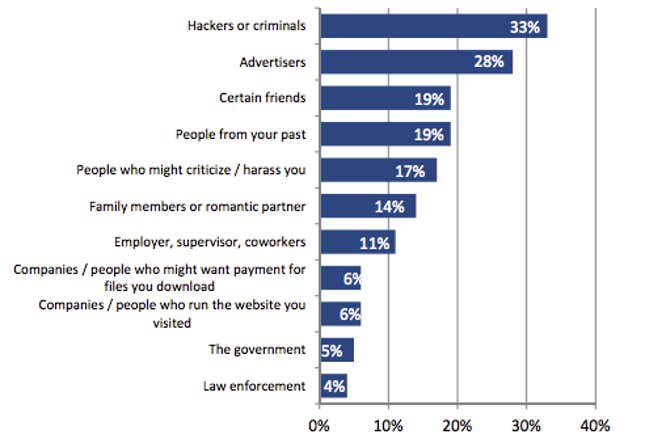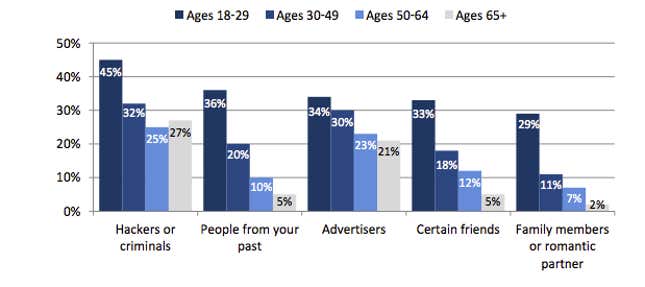Americans really dislike advertisers. A survey report (pdf) out today from Pew that looks at anonymity, privacy, and security online finds that “considerably more people take steps to avoid advertisers and unpleasant social observations than take steps to avoid detection by their employers or by government or law enforcement.”
According to the report, 28% of American internet users had taken steps to hide specifically from advertisers. Only “hackers and criminals” scared more people, with a third of respondents having done something to safeguard themselves from attack. Despite the past few months’ revelation about snooping by the state, the government and law enforcement agencies concerned people the least.

Tactics employed by internet browsers to reduce their online footprint generally include things like clearing cookies and browser history, simply disallowing cookies, or using fake names and email addresses. Just under a fifth of people say they have tried to mask their identity, and one in seven encrypted their communications. Pew did not ask how many use ad blocking software. But a separate report (pdf) provided an estimate of more than one-fifth of global internet users.
Worryingly for advertisers, their main audience is also the one that most actively seeks out ways to avoid being tracked online. Over a third of people aged between 18 and 29 (whom Pew refers to as “young adults”) try to avoid advertisers, compared to 23% or less for those over age 50. That may well be because younger people also reported having the greatest amount of information about themselves available online.

The data from Pew add to a growing backlash against online advertising. Facebook is embroiled in yet another fracas (paywall) over the latest changes to its privacy policy, which allows the social network to deploy users’ names and pictures for the purposes of advertising. The rise of ad blockers has been a growing trend. And people seem willing to donate money to the cause of telling others that they too can avoid ads. The backlash against advertising has only just begun.



